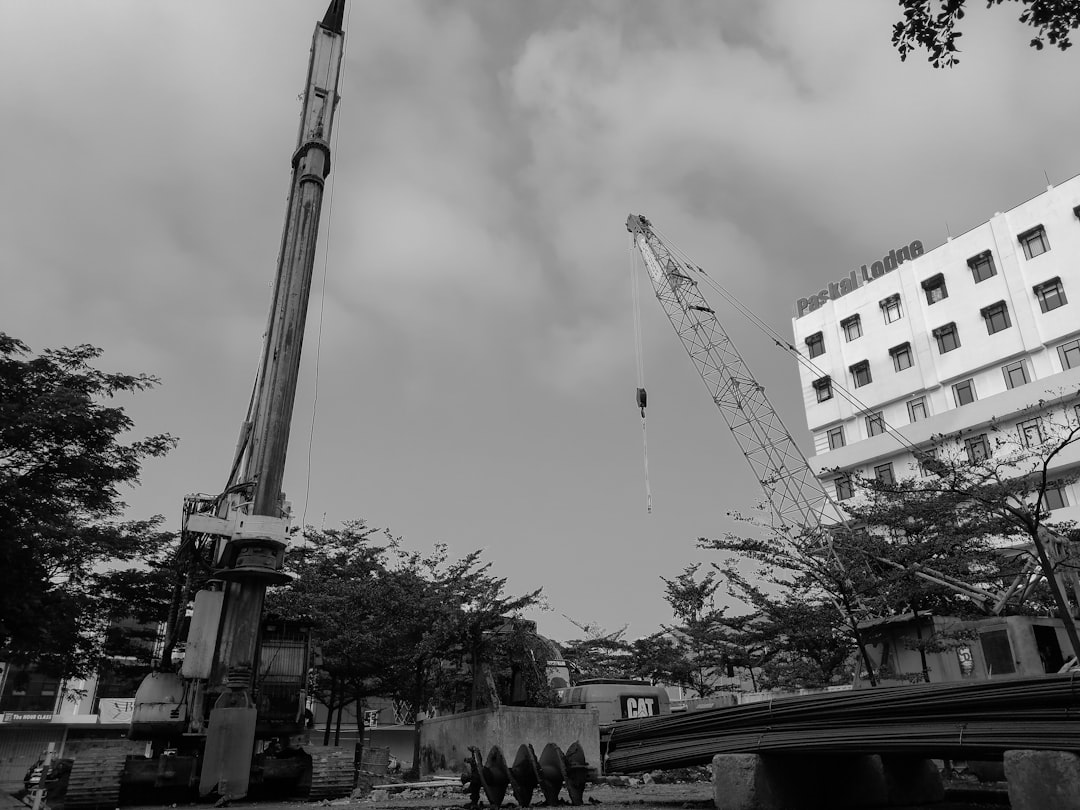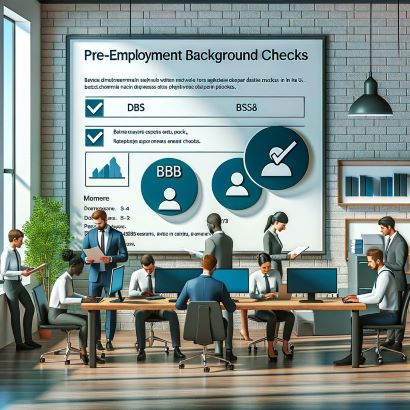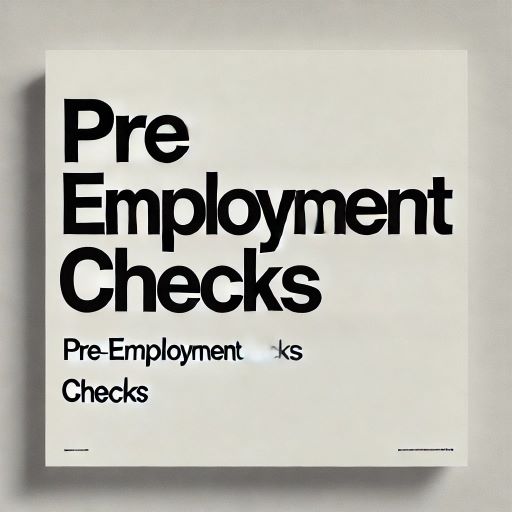

Employment history checks are another key component of BPSS clearance, providing insight into an individual's work behavior and integrity. These components ensure that the individual is appropriately vetted for security-sensitive positions but do not delve into extensive criminal history unless necessary for the role. By vetting individuals' backgrounds, the government ensures that sensitive information remains protected from those who might misuse it.
Enhanced technological advancements are shaping the future landscape of BPSS compliance, offering quicker and more accurate identity verification processes. Have you ever wondered how this meticulous screening process impacts various sectors and the individuals involved?
BPSS clearance incorporates these checks, aligning with legal requirements to prevent illegal working and ensuring that all employees have the necessary authorization to work. right to work checks as well as a basic dbs checks are part of bpss clearance in the uk. Delays often occur during manual verification processes, impacting the overall clearance timeline.
This proactive approach helps organizations preempt potential security risks before they become problematic by analyzing trends and behaviors gleaned from past BPSS checks. Hiring policies Employment History Validation A minimum of three years of employment history must be provided to complete the recruitment process.
When aiming for BPSS clearance, ensuring you have the right documents is paramount. When comparing BPSS checks to other screening processes, it becomes evident that BPSS focuses specifically on verifying identity, right to work status, criminal records, and employment history. Identity checks are essential, requiring verification through official documents to confirm personal details.
This adherence to data protection laws is crucial in maintaining the trust of applicants and the legitimacy of the screening process. This transparency helps maintain trust between the employer and the employee, and ensures that the process is viewed as legitimate and fair.
The BPSS clearance process also assesses the nationality and immigration status of the applicant, confirming their eligibility to work in the UK. While BPSS checks aren't formal security clearances, they're vital for accessing UK OFFICIAL and occasional UK SECRET assets.
The role of BPSS clearance in maintaining public trust cannot be overstated. By organizing and presenting these essential documents accurately, you can expedite the verification process and demonstrate your suitability for accessing UK OFFICIAL assets. Safeguarding measures

Follow our guide to apply for BPSS clearance successfully.
Posted by Jasmine Roberts on 2024-10-08

Keep your BPSS clearance active with proper renewals.
Posted by Jasmine Roberts on 2024-06-24
Posted by Jasmine Roberts on 2024-06-14

Learn how employers can ensure BPSS compliance.
Posted by Jasmine Roberts on 2024-06-08

Avoid these common BPSS clearance application mistakes.
Posted by Jasmine Roberts on 2024-05-29

Discover what employers verify during BPSS checks.
Posted by Jasmine Roberts on 2024-05-10

Learn the essential requirements for BPSS clearance approval.
Posted by Jasmine Roberts on 2024-04-27

Learn the differences between BPSS and CTC clearance.
Posted by Jasmine Roberts on 2024-02-10
This process not only supports the legal operation of businesses but also protects against potential security risks associated with unauthorized employment. Ensuring you have all these documents in order will help streamline the verification process and increase the chances of successfully obtaining BPSS clearance. Generally, a BPSS check can take anywhere from two weeks to a month to complete.
Temporary staff within government organizations may also need a BPSS check as part of pre-employment screening procedures. In contrast, BS7858:2019 requires that the screening process is updated every three years, or more frequently depending on company policy, to ensure that the security status of employees does not change over time.
BPSS clearance is usually valid for 3 years from the date of issue.2. This screening, which is a baseline personnel security standard in the UK, includes checks like Basic DBS Check, ID Check, Right to Work check, and 3-Year Employment History Check.
This ensures that any changes that might affect an individual's security status are identified and managed effectively, maintaining continuous security compliance. Airport security staff are required to have BPSS clearance because they work in sensitive zones and deal with threats to national and international travel security.

These documents are essential in demonstrating your work experience and financial records. The importance of BPSS clearance lies in its role in verifying essential aspects of individuals' backgrounds for positions involving sensitive information access. These additional investigations could involve checks on overseas travel history for periods exceeding 6 months within the last 3 years.
Illegal workers may pose a security risk as they might have circumvented the usual checks and processes designed to protect sensitive information and environments. Keep in mind that additional checks like international criminal record screenings might come with extra fees.
It's imperative to make sure that the identification documents you provide are original, unexpired, and legitimate. This step ensures that the candidate is who they claim to be and helps prevent identity fraud.
Your proof of identity, employment history, and national and immigration status play an essential role in this process. Compliance with BPSS checks is not only about adhering to legal requirements but also about ensuring the safety and security of governmental operations and sensitive information.


Therefore, full disclosure and honesty regarding any unspent criminal records are crucial steps in the BPSS application process. Adhere to the Baseline Personnel Security Standard (BPSS) clearance process to gain authorized access to UK OFFICIAL Assets. The implementation of BPSS checks ensures that individuals have the right to work in the UK and do not have affiliations or histories that could pose a security risk.
HMRC tax records and National Insurance contributions can be used to validate your employment history. BPSS is the standard background check required primarily for government employees and contractors to ensure they meet certain standards of trustworthiness and reliability.
BPSS clearance is often a prerequisite for obtaining higher levels of security clearance, such as Security Check (SC) or Developed Vetting (DV).

Employers or vetting agencies collect the necessary documents and information from the candidate, which are then meticulously verified against various databases and through direct contact with relevant institutions. However, it also necessitates stringent measures to guard against potential cybersecurity risks. This proactive approach ensures that any changes in an employee's background that could affect their security status are promptly addressed, maintaining the integrity of sensitive environments and protecting national interests.
Both types of checks are crucial, yet they serve different and complementary purposes within the spectrum of employment background screenings in the UK. Each document serves as a puzzle piece in the larger picture of your suitability.
The scope and depth of the checks under these two standards vary significantly. The BPSS is primarily concerned with establishing a baseline of trustworthiness and integrity, ensuring that all employees meet a standard level of security before they commence employment.
Employers might probe deeper into any gaps in employment history surpassing 31 days as part of the BPSS process. The employer must inspect these documents to ensure they are valid and belong to the individual presenting them.
Employers must ensure that information is not used discriminatorily and is stored only as long as necessary for security purposes. Finally, while both BPSS and BS7858:2019 are crucial for their respective fields, the choice of which standard to apply depends on the specific needs of the organization and the nature of its work.

Delays in BPSS Clearance can occur due to incomplete applications, missing documents, or extended reference checks. Applicants should ensure all information is accurate and complete.
Employers rely on BPSS Clearance results to make informed hiring decisions for sensitive roles. It helps ensure candidates meet security standards required for the job.
Once a BPSS application is submitted, the employer reviews the documents, verifies references, and conducts identity and background checks before granting clearance.
Government roles require BPSS Clearance to ensure that employees handling sensitive information are trustworthy, legally authorized to work, and free of disqualifying criminal histories.
Employers conducting BPSS screening must comply with UK data protection laws. Personal data is stored securely and used only for vetting purposes.
BPSS Clearance involves verifying an individual’s identity, employment history, right to work, and criminal record. This ensures that only eligible candidates are employed in sensitive positions.
The cost of BPSS Clearance is typically covered by the employer. However, in some cases, applicants may need to pay for certain document-related fees, such as background check certificates.